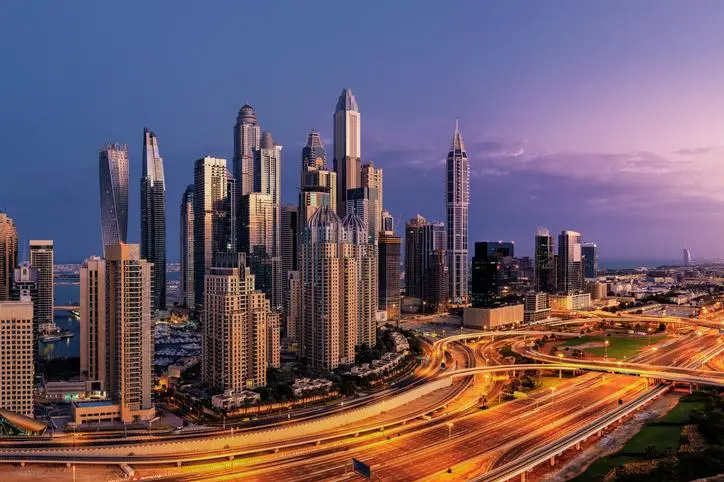PHOTO
The UAE will end 2019 on a better note than in previous years, with the economy forecast to hit a 2 per cent real growth, according to a new report by the Ministry of Economy.
The improved economic performance is due to an increase in output and export capacity in the oil sector, which is expected to hit 3.1 million barrels per day in 2019, as well as the growth in non-oil industries.
The economic narrative for the UAE looks more promising compared to the last few years, when the economy weakened significantly, posting only a 0.5 per cent growth in 2017 and 1.7 per cent in 2018, the report said.
Compared to its global peers, which have been impacted by trade fears, tightening bank credit policies in China and narrowing financial conditions, among other factors, the landscape looks better for the UAE as well. Estimates by the International Monetary Fund (IMF) showed that global economic growth will continue to slide from 3.6 per cent in 2018 to 3.2 per cent in 2019, after hitting a 3.8 per cent peak in 2017.
The UAE prides itself on being one of the most diversified economies in the world, with the non-oil sector, constituting 70 per cent of the gross domestic product (GDP), “accelerating” its growth pace.
Top officials had acknowledged that despite its diversification efforts, the UAE is not completely immune to external shocks but that the country has managed to cushion the impact of a global slowdown.
Sultan bin Saeed Al Mansoori UAE Minister of Economy said: “Global economic activity has been weak in 2019, as a result of numerous updates that have affected the entire economic landscape,”
He noted that with the UAE’s economic model, and by “deepening the role of innovation, technology, knowledge and research,” as well as by “supporting national entrepreneurship,” the country succeeded in limiting the “impact of these global economic variables.”
The Ministry of Economy’s annual economic report was released at the ongoing UAE Economic Forum, to provide an explanation and an overview of the economic conditions, variables and indicators in the UAE during 2018.
As for the overall cost of living, it looks like the numbers have eased, with the UAE Ministry of Economy predicting the inflation rate to drop to -1.2 per cent by the end of the year. This is partly due to the decline in housing rent and oil prices.
As for merchandise exports, there will be an increase of 4.2 per cent, and the total value of which is expected to reach about $33.02 billion, up from $316.9 billion in 2018. The volume of imported merchandise will likewise grow by 4.3 per cent to hit $245.4 billion, compared to $235.4 billion in 2018.
As for the other indicators, there is no forecast for the end of the year, although the UAE Ministry of Economy highlighted the achievements of some industries over the last several years.
Speaking at the conference on Wednesday, Nada Al Hashimi, director for economic research at the Ministry of Economy, noted that the UAE has made significant progress in certain sectors over the past five years, with the information and communications sector growing at an annual rate of 5.4 per cent; the education and professional, scientific and technical activities sectors posting a yearly growth of 5.6 per cent and 1.9 per cent, respectively.
The two-day forum is being held under the patronage of His Highness Shaikh Mohammad bin Rashid Al Maktoum, vice president prime minister and ruler of Dubai.
(Writing by Cleofe Maceda; editing by Seban Scaria)
Our Standards: The Thomson Reuters Trust Principles
Disclaimer: This article is provided for informational purposes only. The content does not provide tax, legal or investment advice or opinion regarding the suitability, value or profitability of any particular security, portfolio or investment strategy. Read our full disclaimer policy here.
© ZAWYA 2019




















